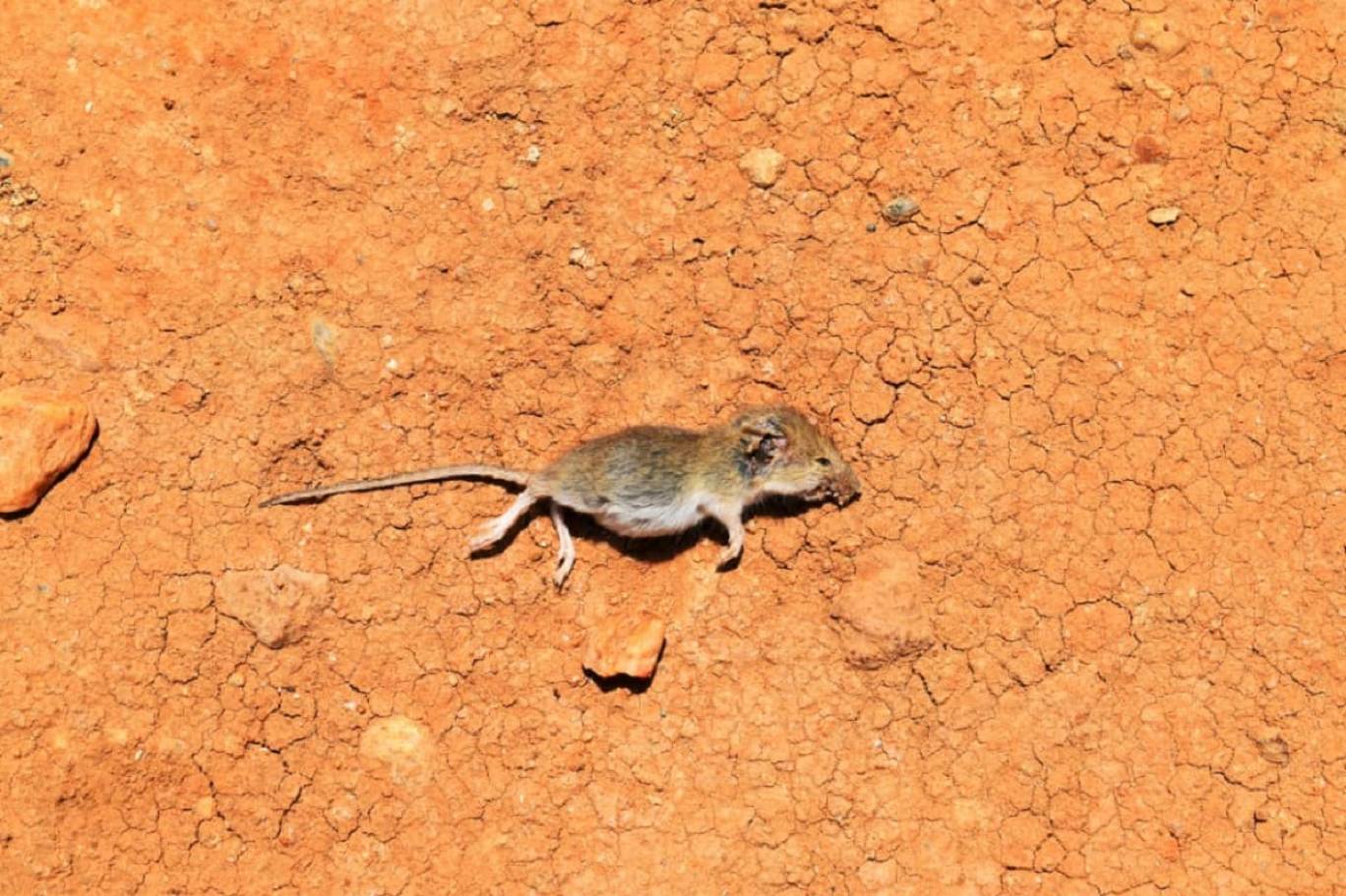
A new kind of fear has gripped the people of Sudan’s Al-Jazirah State, south of Khartoum, following the mass deaths of rats in agricultural projects and residential areas across several localities. Residents worry that the mysterious cause behind the phenomenon may be linked to a looming epidemic with dire consequences for public health. At the same time, cats feeding on the carcasses have emerged as an additional threat to life in the state, home to more than five million people.
In response, warning messages have circulated urging citizens to avoid contact with the dead rats and to bury or burn them safely, as well as to stay away from cat attacks, which have recently become unusually aggressive and erratic in several parts of Al-Jazirah.
A “Madness” Surge
Abdelqader Wansi, a resident of Al-Hasahisa in Al-Jazirah, said: “Every morning, residents are shocked to find large numbers of dead rats across towns and villages in the state. Fears are growing that toxic pesticides used against rodents in farms or neighborhoods are behind it.”
He added: “Beyond the environmental and health repercussions, the dead rats have become a food source for stray cats in streets and even inside villages, which is worsening the crisis—especially as some cats show signs of rabies-like madness.”
Wansi stressed that despite two weeks passing since the phenomenon began, the authorities have yet to act to determine the causes or implement health measures to contain the crisis before it spirals into an uncontrollable disaster.
Worries and Threats
Hamza Al-Tahir, who returned to Wad Al-Haddad in the same state, said: “The rat deaths have spread across more than 106 villages in Al-Jazirah, which already suffers from poor environmental and health services. People suspect toxic substances left behind from the war.”
He noted that the phenomenon coincided with the spread of expired pesticides and fertilizers during the period when the Rapid Support Forces were in the state, raising fears of chemical contamination of the environment due to war remnants or unregulated chemical use.
Al-Tahir warned of an imminent environmental and health disaster in many parts of the state, with no urgent measures in place to prevent it. He stressed that the situation could trigger dangerous epidemic diseases, given the ideal breeding grounds for disease vectors such as flies and mosquitoes, in addition to the growing numbers of dead rats and the foul odors they emit.
Epidemic Fears
Veterinarian Younis Al-Hallawi suggested that the soil may have been contaminated with toxins from decomposed human or animal corpses, or that mass food poisoning occurred after rats consumed chemically treated crops or waste.
He called on the Ministry of Agriculture to collect soil samples and conduct tests to detect possible toxins or lethal pesticides, especially since rats are widespread in agricultural projects.
Al-Hallawi warned that unless the disposal of dead rats follows proper health protocols, several diseases could emerge—whether zoonotic or transmissible between animals and humans.
Attacks and Warnings
Eyewitnesses in Wad Al-Bilal, Al-Ramitab, Fatar, and other areas west of Al-Jazirah reported that cats roaming the streets have shown strange, aggressive behavior towards people, appearing agitated and ready to attack suddenly and violently—posing a new danger to human life.
Saad Al-Sharif, a resident of Wad Al-Bilal, said: “The cats make disturbing noises at night, almost like wolves howling. They constantly roam around garbage sites, fighting each other, which may increase the spread of rabies among them. This doubles the danger to human life at a time when anti-rabies vaccines and medical services are unavailable.”
He noted that cats in some villages have become feral and rabid, attacking both children and adults. He urged people to take necessary precautions and avoid all cats, including household ones.
Health Hazards and Epidemics
Similarly, veterinary and livestock production specialist Abdelbaqi Al-Sir warned that the continued presence of live rats in homes poses serious health risks, especially as they may carry deadly diseases at a time when the health sector is deteriorating.
He highlighted the risks of hantavirus pulmonary syndrome, which can spread through contact with rats or their droppings; rat-bite fever, a fatal infectious disease transmitted through bites or scratches; as well as bubonic plague.
Al-Sir suggested that the cats plaguing villages in Al-Jazirah may have contracted rabies by eating the dead rats. He explained that rabies is a lethal viral disease that directly attacks the nervous system, replicates in muscle tissue, then spreads to the brain, causing acute encephalitis and, ultimately, death.
On treatment, he said: “In past years, treatment required 21 injections, but now it has been reduced to just five doses—provided they are administered in time.”
He called for urgent action to mitigate the crisis by conducting environmental surveys through the Ministry of Agriculture and local health authorities.




